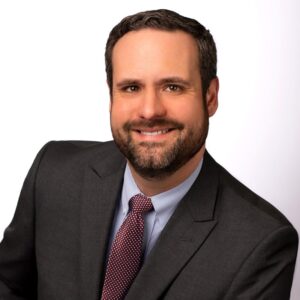On March 20, 2020 Illinois Governor J.B. Pritzker issued COVID-19 Executive Order No. 8, requiring most citizens of Illinois to stay at home and mandating that all non-essential businesses needed to close. The original order was set to expire on March 21st, but has been renewed more than once since then, and is currently set to expire on April 30th.
Since that shelter in place order was issued there has been considerable confusion amongst many divorced and never-married parents who divide parenting time for their children pursuant to court order. Does the Governor’s order mean that parenting time schedules are suspended? Will the time and place for exchanges need to be modified? What about parents who are essential workers, but might be exposed to the virus?
Fortunately, the Executive Order itself has language that addresses some of those concerns. Section 14(e) specifically notes that individuals are permitted to travel when required by court order, “including to transport children pursuant to a custody agreement.” Section 14(b) also states more generally that “travel to care for the elderly, minors, dependents, persons with disabilities, or other vulnerable persons” is also permitted during the time we are all sheltering in place.
Pursuant to the plain language of the Governor’s order, the State contemplated that parenting time exchanges would be exempted from travel restrictions otherwise being imposed during this time. Since issuance of that Order, it has also been the consensus of Judges and practicing family law attorneys that parenting time schedules should continue uninterrupted during this time (in whatever manner was previously ordered). Governor Pritzker’s stay at home order, on its own, does not suspend or change the language of people’s custody agreements.
Obviously, common sense should still prevail. With stores and restaurants closed, it may be impossible to do visitation exchanges indoors at most public places right now. Curbside or parking lot exchanges can work as just as well. When presented with such logistical issues, parents should try to work out whatever seems reasonable.
Less clear is what should happen right now if one parent is working a job with high potential for exposure to the virus. Those situations probably need to be addressed on a case by case basis. Even during this period when the courts are mostly closed, true emergencies can still be heard. That said, a child’s life or safety better be genuinely threatened! This is not a time for frivolous litigation.
As a parting thought, how parents behave during these difficult times could very well have repercussions for them once the courts re-open and things are “back to normal.” I believe that if a parent behaves badly during the COVID-19 crisis, such as unjustifiably denying the other parent parenting time with a child, there could be a day of reckoning later on. Such behavior could lead to the other parent getting substantial make-up parenting time or could even be the basis for significant changes to the parties’ parenting agreement on a longer-term basis.

